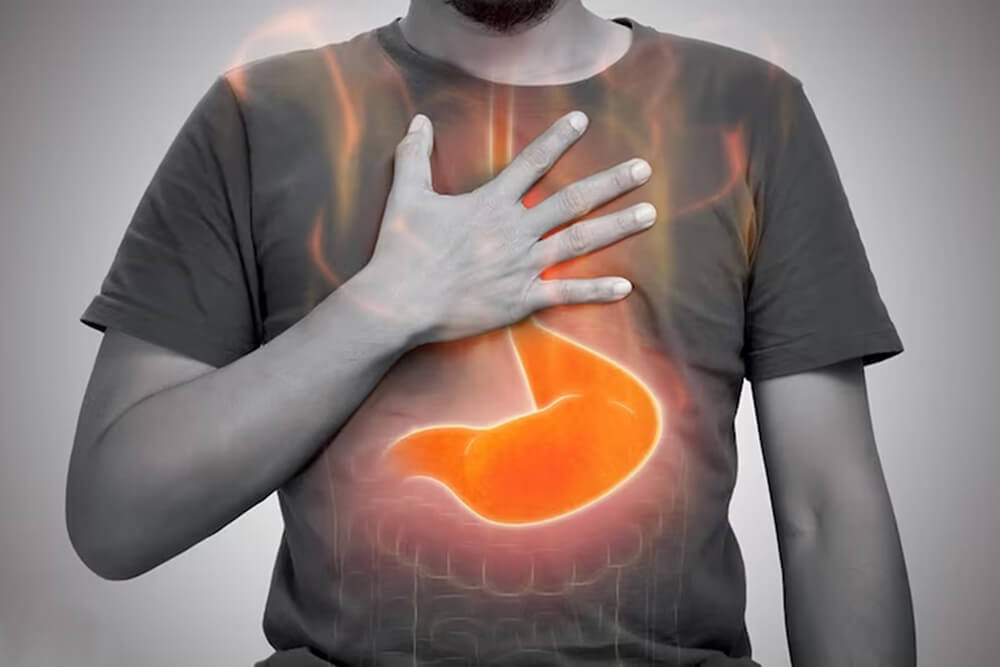
The people living in Houston and having a problem with acid reflux at night can determine the extent to which this issue is tricky when it comes to sleep. Night flares most of the time occur in Gastroesophageal reflux disease (GERD). Nevertheless, it can be assisted by basic bed routines. Here you will know the best sleeping arrangements to help lessen nighttime reflux, avoid coincidences of GERD during sleep, and herbal remedies of night heartburn. We will also tell about the secrets of a first-badge gastroenterologist, Dr. Bharat Pothuri, who is a manager of the practice in the Greater Houston region.
Making a relaxing reflux-friendly routine, make you sleep well. Pay attention to schedule, posture and habits that reduce acid build up.
Strive to clear off meals not less than 2 3km before sleep.
Choose lean proteins, steamed vegetables, and whole-grain foods.
Keep dinner meal portions small.
Skip coffee, black tea, and alcohol near bedtime.
Limit carbonated drinks.
Drink water or non-citrus herbal teas instead.
Take a slow promenade of 10-15 minutes.
Avoid bending or heavy lifting within 2 hours after meals.
Sitting up helps the acid stay down.
Tight belly-bands or waistlines increase pressure on the abdomen.
Comfortable sleepwear relieves your stomach.
During the 2-3 hours before going to sleep, avoid:
Consistency is key. Develop a routine of slowly winding down that is relaxing to your body and mind.
Try deep-breathing or guided-meditation applications.
Spend 5-10 minutes stretching or doing little yoga.
Keep bedroom temperature around 65-68°F.
Block out noise and light using curtains or earplugs.
Use a white-noise machine if needed.
Sip water little by little; avoid gulping.
Herbal teas such as chamomile or ginger can calm your esophagus.
Limit fluids 1 hour before sleep.
Elevation of the upper body helps gravity retain acid in the stomach.
Left lateral decubitus position suppresses acid flow.
Use a wedge pillow or adjustable bed. Raise your upper body 6-8 inches.
These postures can worsen reflux symptoms.
| Position | Pros | Cons |
| Left side (LSD) | Reduces acid exposure | May cause shoulder discomfort |
| Right side (RSD) | Comfortable for some | Increases reflux episodes |
| Flat on back | Even pressure distribution | Maximum risk of nighttime heartburn |
| Elevated head & torso | Gravity limits acid backflow | Requires wedge pillow or adjustable bed |
Extra steps in addition to position help improve sleep.
Medium-firm mattress relieves stomach pressure.
Wedge pillows provide stable support.
Adjustable bed helps customize angle.
Go to bed and wake up at consistent times.
Predictable rhythm supports digestion and healing.
Turn off TV, mobile, or computer 30 minutes before bed.
Blue light can disrupt your natural sleep cycle.
Increases saliva to naturally neutralize acid.
Raw honey or aloe vera juice can soothe irritation. Ensure food-grade aloe vera.
Ginger has anti-inflammatory properties. Steep slices in hot water for 10 minutes.
Coats the esophagus lining. Use in tea or lozenge form.
Low-fat yogurt or supplements may balance gut bacteria and aid digestion.
High stress can worsen GERD. Try yoga studios in Montrose or meditation near The Woodlands.
Both relax the LES. Seek support from Houston's Smoking Cessation Clinic at Memorial Hermann.
Extra weight strains the stomach. Top-rated bariatric centers in Houston offer tailored programs.
If lifestyle changes fail after 4-6 weeks, consult a gastroenterologist. Dr. Bharat Pothuri of Houston GI Consultants says, “Early evaluation can prevent complications and guide proper treatment.”
Adopting these bedtime routines and simple lifestyle changes can help you sleep better and keep nighttime acid reflux under control. Gastrodoxs wishes you relief—and sweet dreams—in Houston and beyond.
Strive to clear off meals not less than 2 3km before sleep.
Yes. When snacking, be sure that you eat strictly non-acidic and low-fat foods such as an oatmeal or a banana.
It is okay to use occasionally, but to rely on it frequently then you have to visit a doctor.
About 6–8 inches is ideal. An adjustable base or wedge pillow is the best.
Others, such as ginger, chamomile, etc. are anti-inflammatory and calming.
Yes. Weight reduction of 5 0 -10 favorite can relax you stomach.
It is usually better to sleep on your left side to ensure that there is less acid circulation.
Absolutely. Stress may intensify stomach acid and retard digestion.
They can balance the gut bacteria and aid digestion, although the outcome is different.
You should seek treatment immediately in case you experience heartburn more than twice a week, accidental loss of weight, and difficulty in swallowing.